当前位置:网站首页>C - linear table
C - linear table
2022-07-07 23:43:00 【Min, Hello, Xun】
List of articles
Basic concept of linear table
Basic concepts
- A linear table is a finite sequence of zero or more data elements .
- characteristic :
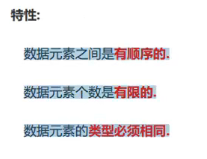
Mathematical definition
- Definition

- nature
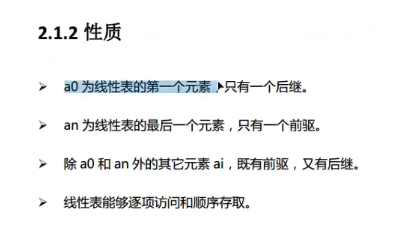
Sequential storage of linear tables
Concept of sequential storage

Design and implementation of linear table sequential storage
- Case study : The dynamic array
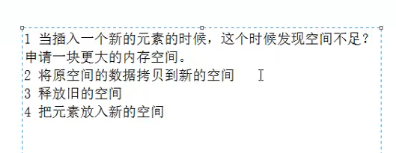
Example :
- Create header file ——DynamicArray.h
#pragma once// Prevent header files from repeatedly containing
//#ifndef DYNAMIC_ARRAY_H
//#define DYNAMIC_ARRAY_H
#include<stdio.h>
#include<stdlib.h>
#include<string.h>
// Statement
// Put some interfaces in the header file
// Dynamically growing memory , Put the data on the heap
// Dynamic array structure definition
typedef struct DYNAMICARRAY
{
int* pAdder;// The address where the data is stored
int size;// Number of current elements
int capacity;// Capacity , How many elements can the container currently hold
}Dynamic_Array;
// Write about DYNAMICARRAY Function of structure operation
// initialization
Dynamic_Array* Init_Array();
// Insert
void Push_Array(Dynamic_Array* arr, int value);
// Delete... According to location
void RemoveByPos_Arrray(Dynamic_Array* arr, int pos);
// Delete... Based on value
void RemoveByValue_Array(Dynamic_Array* arr, int value);
// lookup
int Find_Array(Dynamic_Array* arr, int value);
// Print
void Printf_Array(Dynamic_Array* arr);
// Free up memory for dynamic arrays
void FreeSpace_Array(Dynamic_Array* arr);
// Empty array
void Clear_Array(Dynamic_Array* arr);
// Get dynamic array capacity
int Capacity_Array(Dynamic_Array* arr);
// Get the current number of elements of the dynamic array
int Size_Array(Dynamic_Array* arr);
// Get a location element based on the location
int At_Array(Dynamic_Array* arr, int pos);
//#endif
- establish DynamicArray.c Source file , Write each function
#include"DynamicArray.h"
// initialization
Dynamic_Array* Init_Array()
{
Dynamic_Array* myArray = (Dynamic_Array*)malloc(sizeof(Dynamic_Array));
myArray->size = 0;
myArray->capacity = 20;
myArray->pAdder = (int*)malloc(sizeof(int)*myArray->capacity);
return myArray;
}
// Insert
void Push_Array(Dynamic_Array* arr, int value)
{
if (arr == NULL)
{
return ;
}
// Judge whether there is enough space
if (arr->size == arr->capacity)
{
// First step , Open up a larger space , The new space is just space 2 times
int* newpAdder= (int*)malloc(sizeof(int)*arr->capacity * 2);
// The second part copies data
memcpy(newpAdder, arr->pAdder, arr->capacity * sizeof(int));
// Free up space
free(arr->pAdder);
// Update capacity
arr->capacity = arr->capacity * 2;
arr->pAdder = newpAdder;
}
// Insert new elements
arr->pAdder[arr->size] = value;
arr->size++;
}
// Delete... According to location
void RemoveByPos_Arrray(Dynamic_Array* arr, int pos)
{
if (arr == NULL)
{
return ;
}
// Determine if the location is valid
if (pos < 0 || pos >= arr->size)
{
return;
}
// Remove elements
for (int i = pos; i < arr->size - 1; i++)
{
arr->pAdder[i] = arr->pAdder[i + 1];
}
arr->size--;
}
// Delete... Based on value value( When it first appeared )
void RemoveByValue_Array(Dynamic_Array* arr, int value)
{
if (arr == NULL)
{
return ;
}
// Find the location of the value
int pos= Find_Array(arr,value);
// Delete... According to location , Call the location deletion function
RemoveByPos_Arrray(arr, pos);
}
// lookup
int Find_Array(Dynamic_Array* arr, int value)
{
if (arr == NULL)
{
return -1;
}
int pos = -1;
for (int i = 0; i < arr->size; i++)
{
if (arr->pAdder[i] == value)
{
pos = i;
break;
}
}
return pos;
}
// Print
void Printf_Array(Dynamic_Array* arr)
{
if (arr == NULL)
{
return;
}
for (int i = 0; i < arr->size; i++)
{
printf("%d ", arr->pAdder[i]);
}
printf("\n");
}
// Free up memory for dynamic arrays
void FreeSpace_Array(Dynamic_Array* arr)
{
if (arr == NULL)
{
return;
}
if (arr->pAdder != NULL)
{
free(arr->pAdder);
}
free(arr);
}
// Empty array
void Clear_Array(Dynamic_Array* arr)
{
if (arr == NULL)
{
return ;
}
arr->size = 0;
}
// Get dynamic array capacity
int Capacity_Array(Dynamic_Array* arr)
{
if (arr == NULL)
{
return -1;
}
return arr->capacity;
}
// Get the current number of elements of the dynamic array
int Size_Array(Dynamic_Array* arr)
{
if (arr == NULL)
{
return -1;
}
return arr->size;
}
// Get a location element based on the location
int At_Array(Dynamic_Array* arr, int pos)
{
return arr->pAdder[pos];
}
- establish 01 The dynamic array .c Source file , To test
#include<stdio.h>
#include<stdlib.h>
#include<string.h>
#include"DynamicArray.h"
void test01()
{
// Initializing dynamic arrays
Dynamic_Array* myArray=Init_Array();
printf(" Array capacity :%d\n", Capacity_Array(myArray));
printf(" Array size :%d\n", Size_Array(myArray));
// Insert elements
for (int i = 0; i <30; i++)
{
Push_Array(myArray, i);
}
Printf_Array(myArray);
printf(" Array capacity :%d\n", Capacity_Array(myArray));
printf(" Array size :%d\n", Size_Array(myArray));
RemoveByPos_Arrray(myArray, 2);
RemoveByValue_Array(myArray, 8);
// Print
Printf_Array(myArray);
// Look for the element 5 The location of
int pos = Find_Array(myArray, 5);
printf(" Elements 5 The location of the for :%d\n", pos);
// Release
FreeSpace_Array(myArray);
}
int main()
{
test01();
system("pause");
return 0;
}
result :
Array capacity :20
Array size :0
0 1 2 3 4 5 6 7 8 9 10 11 12 13 14 15 16 17 18 19 20 21 22 23 24 25 26 27 28 29
Array capacity :40
Array size :30
0 1 3 4 5 6 7 9 10 11 12 13 14 15 16 17 18 19 20 21 22 23 24 25 26 27 28 29
Elements 5 The location of the for :4
Chain storage of linear table
Basic concepts

Design and implementation of single linked list
- The data field and pointer field of one-way linked list are put together , When inserting a new node , We need to open up new space to create new nodes .
The process of inserting elements at specified positions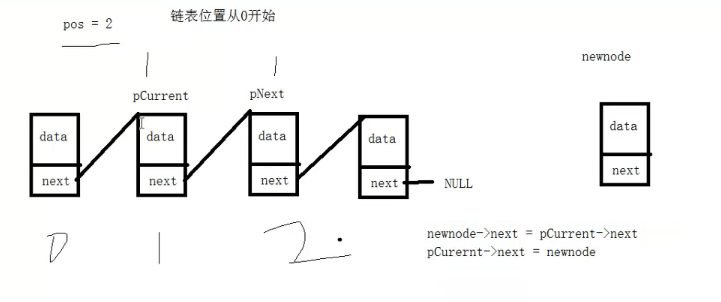
- Example : Single item list
- Create a header file first ,LinkList.h The header file
#pragma once
#include<stdio.h>
#include<stdlib.h>
#include<string.h>
// List nodes
typedef struct LINKNODE
{
void* data;// A typeless pointer can point to the address of any type of data
struct LINKNODE* next;
}LinkNode;
// List structure
typedef struct LINKLIST
{
LinkNode* head;// Head node , It belongs to structure nesting
int size;// Number of current elements
// The linked list does not need to set the capacity in advance
}LinkList;
// Print function pointer
typedef void(*PRINTLINKNODE)(void*);//typedef Define function pointers
// Initialize linked list
LinkList* Init_LinkList();
// Insert... At specified location
void Insert_LinkList(LinkList* list, int pos, void* data);
// Delete the value at the specified location
void RemoveByPos_LinkList(LinkList* list,int pos);
// Get the length of the list
int Size_LinkList(LinkList* list);
// lookup
int Find_LinkList(LinkList* list, void* data);
// Return to the first node
void* Front_LinkList(LinkList* list);
// Print linked list node
void Print_LinkList(LinkList* list, PRINTLINKNODE print);//???
// Free up linked list memory
void FreeSpace_LinkList(LinkList* list);
- Build a LinkList.c The source file , Write each function
#include"LinkList.h"
// Initialize linked list
LinkList* Init_LinkList()// Maintenance structure , Operate the structure
{
LinkList* list = (LinkList*)malloc(sizeof(LinkList));
list->head = 0;
// Make room for the head node , The header node does not save data information
list->head = (LinkNode*)malloc(sizeof(LinkNode));
// Head node initialization , The next node of the head node is the first node of the linked list
list->head->data = NULL;
list->head->next = NULL;
return list;
}
// Insert... At specified location
void Insert_LinkList(LinkList* list, int pos, void* data)
{
if (list ==NULL ||data==NULL)
{
return;
}
// about pos Friendly handling of cross-border
if (pos<0 || pos>list->size)
{
pos = list->size;
}
// Create a new node
LinkNode* newnode = (LinkNode*)malloc(sizeof(LinkNode));
newnode->data = data;
newnode->next = NULL;
// Find nodes , Auxiliary pointer variable
LinkNode* pCurrent = list->head;
for (int i = 0; i < pos; i++)
{
pCurrent = pCurrent->next;
}
// Insert the new node into the linked list
newnode->next = pCurrent->next;
pCurrent->next = newnode;
list->size++;
}
// Delete the value at the specified location
void RemoveByPos_LinkList(LinkList* list, int pos)
{
if (list == NULL)
{
return;
}
if (pos < 0 || pos >= list->size)
{
return;
}
// Find the previous node of the node to be deleted
LinkNode* pCurrent = list->head;
for (int i = 0; i < pos; i++)
{
pCurrent = pCurrent->next;
}
// Cache deleted nodes
LinkNode* pDel = pCurrent->next;
pCurrent->next = pDel->next;
// Release the memory of deleting nodes
free(pDel);
list->size--;
}
// Get the length of the list
int Size_LinkList(LinkList* list)
{
return list->size;
}
// lookup
int Find_LinkList(LinkList* list, void* data)
{
if (list == NULL)
{
return -1;
}
if (data == NULL)
{
return -1;
}
LinkNode* pCurrent = list->head->next;
int i=0;
while (list != NULL)
{
if (pCurrent->data == data)
{
break;
}
i++;
pCurrent = pCurrent->next;
}
return i;
}
// Return the element of the first node
void* Front_LinkList(LinkList* list)
{
return list->head->next->data;
}
// Print the elements of the linked list node
void Print_LinkList(LinkList* list, PRINTLINKNODE print)//???
{
if (list == NULL)
{
return;
}
// Auxiliary pointer variable
LinkNode* pCurrent = list->head->next;
while (pCurrent != NULL)
{
print(pCurrent->data);// Call function
pCurrent = pCurrent->next;
}
}
// Free up linked list memory
void FreeSpace_LinkList(LinkList* list)
{
if (list == NULL)
return;
// Auxiliary pointer variable , Release node memory first
LinkNode* pCurrent = list->head;
while (pCurrent!=NULL)
{
// Cache the next node , Otherwise, each traversal will release one , It will be difficult to find the next node
LinkNode* pNext = pCurrent->next;
free(pCurrent);
pCurrent = pNext;
}
// Release list
list->size = 0;
free(list);
}
- establish 02 Single item list .c Source file , To test
#include<stdlib.h>
#include<stdio.h>
#include<string.h>
#include"LinkList.h"
// Custom data types
typedef struct PERSON
{
char name[21];
int age;
int score;
}person;
// Print function
void myPrint(void* data)
{
person* p = (person*)data;
printf(" name :%s Age :%d achievement :%d\n", p->name, p->age, p->score);
}
int main()
{
// Create a list of
LinkList* list = Init_LinkList();
// Create data types
person p1 = {
" Zhang San ",18,98 };
person p2 = {
" Li Si ",16,89 };
person p3 = {
" Wang Wu ",15,99 };
person p4 = {
" Liu Liu ",19,86 };
person p5 = {
" Chen Qi ",23,87 };
// Data insertion linked list
printf("------------- Insert --------------\n");
Insert_LinkList(list, 0, &p1);
Insert_LinkList(list, 0, &p2);
Insert_LinkList(list, 0, &p3);
Insert_LinkList(list, 0, &p4);
Insert_LinkList(list, 0, &p5);
// Print
Print_LinkList(list, myPrint);
// lookup
printf("------------- lookup ---------------\n");
int pos=Find_LinkList(list, &p2);// When calling a function with a return value , To set the return value
printf(" The element position searched is :%d\n",pos );
// Delete
printf("-------------- Delete location 3 The elements of ---------------\n");
RemoveByPos_LinkList(list, 3);
Print_LinkList(list,myPrint);
// Return to the first node
printf("----------------- Return the first node element --------------\n");
person* ret = Front_LinkList(list);
printf(" full name :%s Age :%d achievement : %d\n", ret->name, ret->age, ret->score);
// Release list
FreeSpace_LinkList(list);
return 0;
}
result :
------------- Insert --------------
name : Chen Qi Age :23 achievement :87
name : Liu Liu Age :19 achievement :86
name : Wang Wu Age :15 achievement :99
name : Li Si Age :16 achievement :89
name : Zhang San Age :18 achievement :98
------------- lookup ---------------
The element position searched is :3
-------------- Delete location 3 The elements of ---------------
name : Chen Qi Age :23 achievement :87
name : Liu Liu Age :19 achievement :86
name : Wang Wu Age :15 achievement :99
name : Zhang San Age :18 achievement :98
----------------- Return the first node element --------------
full name : Chen Qi Age :23 achievement : 87
Design and implementation of enterprise linked list
- The data field and pointer field of the enterprise linked list are separated , And less code .
Example : Enterprise linked list
- Build a LinkList.h The header file
#pragma once
#include<stdio.h>
#include<stdlib.h>
#include<string.h>
// Summary of the list
typedef struct LINKNODE
{
struct LINKNODE* next;
}LinkNode;
// Link list node
typedef struct LINKLIST
{
LinkNode head;
int size;
}LinkList;
// Define print function pointer
typedef void(*PRIENTFNODE)(LinkNode*);
// Compare function pointers
typedef int(*COMPARENODE)(LinkNode*, LinkNode*);
// initialization
LinkList* Init_LinkList();
// Insert
void Insert_LinkList(LinkList* list, int pos, LinkNode* data);// The inserted data is LinkNode* Type of
// Delete
void Remove_LinkList(LinkList* list, int pos);
// lookup
int Find_LinkList(LinkList* list, LinkNode* data,COMPARENODE compare);
// Return the size of the list
int Size_LinkList(LinkList* list);
// Print
void Printf_LinkList(LinkList* list, PRIENTFNODE printf);
// Free up linked list memory
void Free_LinkList(LinkList* list);
- Build a LinkList.c The source file
#include"LinkList.h"
// initialization
LinkList* Init_LinkList()
{
LinkList* list = (LinkList*)malloc(sizeof(LinkList));
list->head.next = NULL;
list->size = 0;
return list;
}
// Insert
void Insert_LinkList(LinkList* list, int pos, LinkNode* data)// The inserted data is LinkNode* Type of
{
if (list == NULL)
{
return;
}
if (data == NULL)
{
return;
}
if (pos<0 || pos>list->size)
{
pos = list->size;
}
// Insert new node
LinkNode* pcurrent = &(list->head);// Because in LinkList.h In the definition of LinkList when ,head It's not a pointer type , So it should be converted to address type
for (int i = 0; i < pos; i++)
{
pcurrent = pcurrent->next;
}
// Insert new node
data->next = pcurrent->next;
pcurrent->next = data;
list->size++;
}
// Delete
void Remove_LinkList(LinkList* list, int pos)
{
if (list == NULL)
{
return;
}
if (pos<0 || pos>list->size)
{
return;
}
// Auxiliary nodes
LinkNode* pcurrent = &(list->head);
for (int i = 0; i < pos; i++)
{
pcurrent = pcurrent->next;
}
// Delete node
pcurrent->next = pcurrent->next->next;
list->size--;
}
// lookup
int Find_LinkList(LinkList* list, LinkNode* data, COMPARENODE compare)
{
if (list == NULL)
{
return;
}
if (data == NULL)
{
return;
}
LinkNode* pcurrent = list->head.next;
int index = 0;
while (pcurrent != NULL)
{
if (compare(pcurrent, data) == 0)
{
break;
}
pcurrent = pcurrent->next;
index++;
}
return index;
}
// Return the size of the list
int Size_LinkList(LinkList* list)
{
return 0;
}
// Print
void Printf_LinkList(LinkList* list, PRIENTFNODE printf)
{
if (list == NULL)
{
return;
}
// Auxiliary pointer
LinkNode* pcurrent = list->head.next;
while (pcurrent != NULL)
{
printf(pcurrent);
pcurrent = pcurrent->next;
}
}
// Free up linked list memory
void Free_LinkList(LinkList* list)
{
if (list == NULL)
{
return;
free(list);
}
}
- Build a 03 Enterprise linked list .c The source file , To test
#define _CRT_SECURE_NO_WARNINGS
#include<stdio.h>
#include<stdlib.h>
#include<string.h>
#include"LinkList.h"
typedef struct PERSON
{
LinkNode node;
char name[21];
int age;
}person;
void myprintf(LinkNode* data)
{
person* p = (person*)data;
printf(" full name :%s Age :%d\n", p->name, p->age);
}
int main()
{
// Create a linked list
LinkList* list = Init_LinkList();
// Create data
/*person p1 = { " Zhang San ",18 }; person p2 = { " Li Si ",19 }; person p3 = { " Wang Wu ",17 };*/ // You can't write it like that , because person There is also a definition node
person p1, p2, p3;
strcpy(p1.name, " Zhang San ");
strcpy(p2.name, " Li Si ");
strcpy(p3.name, " Wang Wu ");
p1.age = 18;
p2.age = 17;
p3.age = 19;
// Insert the node into the linked list
Insert_LinkList(list, 0, (LinkNode*)&p1);
Insert_LinkList(list, 0, (LinkNode*)&p2);
Insert_LinkList(list, 0, (LinkNode*)&p3);
// Print
Printf_LinkList(list, myprintf);
// Delete node
Remove_LinkList(list, 1);
printf(" Delete 1 The linked list element after the node of the position is :\n");
Printf_LinkList(list, myprintf);
// Free up linked list memory
Free_LinkList(list);
}
result :
full name : Wang Wu Age :19
full name : Li Si Age :17
full name : Zhang San Age :18
Delete 1 The linked list element after the node of the position is :
full name : Wang Wu Age :19
full name : Zhang San Age :18
Design and implementation of circular linked list
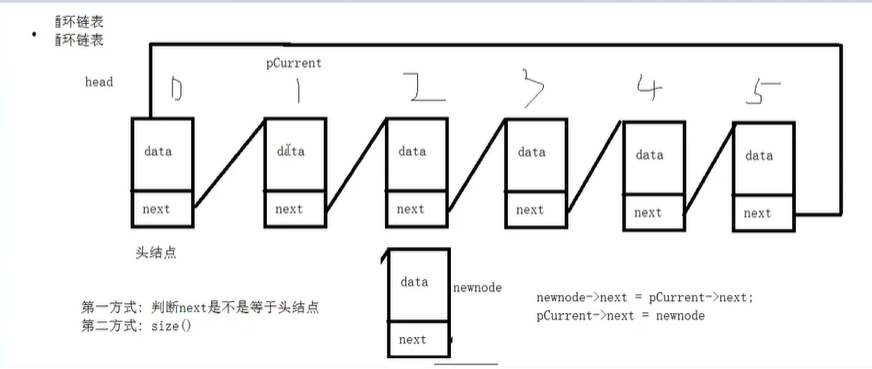
Example :
- Build a CircleLinkList.h The header file
#pragma once
#include<stdio.h>
#include<string.h>
#include<stdlib.h>
#define CIRCLELINKLIST_TRUE 1 // Macro definition
#define CIRCLELINKLIST_FALSE 0
typedef struct CIRCLELINKNODE
{
struct CIRCLELINKNODE* next;
}CircleLinkNode;
typedef struct CIRCLELINKLIST
{
CircleLinkNode head;
int size;
}CirecleLinkList;
typedef int(*COMPARENODE)(CircleLinkNode*, CircleLinkNode*);// Compare callback
typedef void(*PRINTFNODE)(CircleLinkNode*);// Print callback
// Write... For the operation of the linked list structure API function
// Initialization function
CirecleLinkList* Init_CircluLinkList();
// Insert the function
void Insert_CircluLinkList(CirecleLinkList* clist, int pos, CircleLinkNode*data);
// Get the first element
CircleLinkNode* Front_CircleLinkList(CirecleLinkList* clist);
// Delete elements according to location
void RemovByPos_CircleLinkList(CirecleLinkList* clist, int pos);
// Delete elements... Based on values
void RemoveByValue_CircleLinkList(CirecleLinkList* clist, CircleLinkNode*data,COMPARENODE compare);
// Get the length of the list
int Size_CircleLinkList(CirecleLinkList* clist);
// Determine whether it is null
int IsEmpty_CircleLinkList(CirecleLinkList* clist);
// lookup
int Find_CiecleLinkList(CirecleLinkList* clist, CircleLinkNode* data, COMPARENODE compare);
// Print node
void Printf_CircleLinkList(CirecleLinkList* clist, PRINTFNODE print);
// Free memory
void FreeSpace_CircleLinkList(CirecleLinkList* clist);
- Build a CircleLinkList.c Source file
#include "CircleLinkList.h"
// Initialization function
CirecleLinkList* Init_CircluLinkList()
{
CirecleLinkList* clist = (CirecleLinkList*)malloc(sizeof(CirecleLinkList));
clist->size = 0;
clist->head.next = &(clist->head);
return clist;
}
// Insert the function
void Insert_CircluLinkList(CirecleLinkList* clist, int pos, CircleLinkNode*data)
{
if (clist == NULL)
{
return;
}
if (data == NULL)
{
return;
}
if (pos<0 || pos>clist->size)
{
pos = clist->size;
}
// Find the node according to the location
// Auxiliary pointer variable
CircleLinkNode* pcurrent = &(clist->head);
for (int i = 0; i < pos; i++)
{
pcurrent = pcurrent->next;
}
// New data into the linked list
data->next = pcurrent->next;
pcurrent->next = data;
clist->size++;
}
// Get the first element
CircleLinkNode* Front_CircleLinkList(CirecleLinkList* clist)
{
return clist->head.next;
}
// Delete elements according to location
void RemovByPos_CircleLinkList(CirecleLinkList* clist, int pos)
{
if (clist == NULL)
{
return;
}
if (pos<0 || pos>clist->size)
{
return;
}
CircleLinkNode* pcurrent = &(clist->head);
for (int i = 0; i < pos; i++)
{
pcurrent = pcurrent->next;
}
// Cache the next node of the current node , That is, the node to be deleted
CircleLinkNode* pnext = pcurrent->next;
pcurrent->next = pnext->next;
clist->size--;
}
// Delete elements... Based on values
void RemoveByValue_CircleLinkList(CirecleLinkList* clist, CircleLinkNode* data, COMPARENODE compare)
{
if (clist == NULL)
{
return;
}
if (data == NULL)
{
return;
}
// This is a circular list
CircleLinkNode* pprev = &(clist->head);
CircleLinkNode* pcurrent = pprev->next;
for (int i = 0; i < clist->size; i++)
{
if (compare(pcurrent,data) == CIRCLELINKLIST_TRUE)
{
pprev->next = pcurrent->next;
break;
}
pprev=pcurrent;
pcurrent = pprev->next;
}
clist->size--;
}
// Get the length of the list
int Size_CircleLinkList(CirecleLinkList* clist)
{
return clist->size;
}
// Determine whether it is null
int IsEmpty_CircleLinkList(CirecleLinkList* clist)
{
if (clist->size == 0)
{
return CIRCLELINKLIST_TRUE;
}
return CIRCLELINKLIST_FALSE;
}
// lookup
int Find_CiecleLinkList(CirecleLinkList* clist, CircleLinkNode* data, COMPARENODE compare)
{
if (clist == NULL)
{
return -1;
}
if (data == NULL)
{
return -1;
}
CircleLinkNode* pcurrent = clist->head.next;
int flag = -1;
for (int i = 0; i < clist->size;i++)
{
if (compare(pcurrent, data) == CIRCLELINKLIST_TRUE)
{
flag = i;
break;
}
pcurrent = pcurrent->next;
}
return flag;
}
// Print node
void Printf_CircleLinkList(CirecleLinkList* clist, PRINTFNODE print)
{
if (clist == NULL)
{
return;
}
// Auxiliary pointer variable
CircleLinkNode* pcurrent = clist->head.next;
for (int i = 0; i < clist->size; i++)// If you print it twice, you have to multiply it 2, We still need to judge , Is it the head node ( Because it's a circular list )
{
if (pcurrent == &(clist->head))
{
pcurrent = pcurrent->next;// Judge if it is a header node Then point to the next node , Because the header node does not store data
printf("-----------------------\n");
}
print(pcurrent);
pcurrent = pcurrent->next;
}
}
// Free memory
void FreeSpace_CircleLinkList(CirecleLinkList* clist)
{
if (clist == NULL)
{
return;
}
free(clist);
}
- Build a 01 Circular linked list .c The source file , Perform functional tests
#define _CRT_SECURE_NO_WARNINGS
#include<stdio.h>
#include<string.h>
#include<stdlib.h>
#include"CircleLinkList.h"
typedef struct PERSON
{
CircleLinkNode node;
char name[21];
int age;
int score;
}person;
void myprintf(CircleLinkNode* data)// Preparation of callback function
{
person* p = data;
printf(" full name :%s Age :%d achievement :%d\n", p->name, p->age, p->score);
}
int mycompare(CircleLinkNode* data1, CircleLinkNode* data2)
{
person* p1 = data1;
person* p2 = data2;
if (strcmp(p1->name, p2->name) == 0 && p1->age == p2->age&&p1->score == p2->score)
{
return CIRCLELINKLIST_TRUE;
}
return CIRCLELINKLIST_FALSE;
}
int main()
{
// Create a circular list
CirecleLinkList* clist = Init_CircluLinkList();
person p1, p2, p3,p4,p5;
strcpy(p1.name, " Zhang San ");
strcpy(p2.name, " Li Si ");
strcpy(p3.name, " Wang Wu ");
strcpy(p4.name, " Liu Liu ");
strcpy(p5.name, " Chen Qi ");
p1.age = 20;
p2.age = 18;
p3.age = 21;
p4.age = 19;
p5.age = 22;
p1.score = 98;
p2.score = 97;
p3.score =99;
p4.score = 87;
p5.score = 90;
// Insert , Data into linked list
Insert_CircluLinkList(clist,100, (CircleLinkNode*)&p1);
Insert_CircluLinkList(clist, 100, (CircleLinkNode*)&p2);
Insert_CircluLinkList(clist, 100, (CircleLinkNode*)&p3);
Insert_CircluLinkList(clist, 100, (CircleLinkNode*)&p4);
Insert_CircluLinkList(clist, 100, (CircleLinkNode*)&p5);
// Print
Printf_CircleLinkList(clist, myprintf);
// Delete... Based on value
/*person pdel; strcpy(pdel.name, " Wang Wu "); pdel.age = 21; pdel.score = 99; RemoveByValue_CircleLinkList(clist, (CircleLinkNode*)&pdel, mycompare);*/ //==
RemoveByValue_CircleLinkList(clist, (CircleLinkNode*)&p3, mycompare); //==
printf(" The deleted linked list is :\n");
Printf_CircleLinkList(clist, myprintf);
// Free memory
FreeSpace_CircleLinkList(clist);
return 0;
}
result :
full name : Zhang San Age :20 achievement :98
full name : Li Si Age :18 achievement :97
full name : Wang Wu Age :21 achievement :99
full name : Liu Liu Age :19 achievement :87
full name : Chen Qi Age :22 achievement :90
The deleted linked list is :
full name : Zhang San Age :20 achievement :98
full name : Li Si Age :18 achievement :97
full name : Liu Liu Age :19 achievement :87
full name : Chen Qi Age :22 achievement :90
Joseph's question —— Typical application of circular linked list

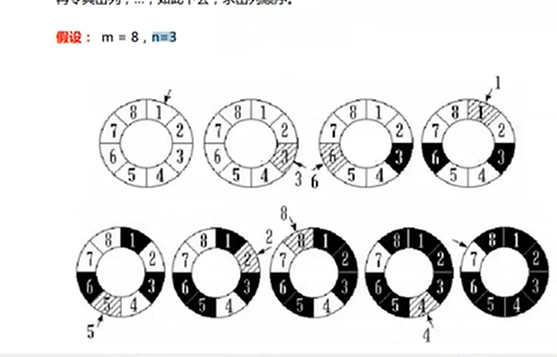
Example :
- Build a CircleLinkList.h The header file
Above : The circular list shows - Build a CircleLinkList.c The source file
Above : The circular list shows - Build a 02 Joseph's question .c The source file , Write the main function
#include<stdio.h>
#include<stdlib.h>
#include<string.h>
#include "CircleLinkList.h"
#define M 8
#define N 3
typedef struct MYNUM
{
CircleLinkNode node;
int value;
}mynum;
void myprintf(CircleLinkNode* data)
{
mynum* num = (mynum*)data;
printf("%d ", num->value);
}
void mycompare(CircleLinkNode*data1, CircleLinkNode* data2)
{
mynum* num1 = data1;
mynum* num2 = data2;
if (num1->value == num2->value)
{
return CIRCLELINKLIST_TRUE;
}
return CIRCLELINKLIST_FALSE;
}
int main()
{
CirecleLinkList* clist = Init_CircluLinkList();
// Linked list insert data
mynum num[M];
for (int i = 0; i < M; i++)
{
num[i].value= i + 1;
Insert_CircluLinkList(clist, i,(CircleLinkNode*)&num[i]);
}
// Print
Printf_CircleLinkList(clist, myprintf);
printf("\n");
int index = 1;
// Auxiliary pointer
CircleLinkNode* pcurrent = clist->head.next;
while (Size_CircleLinkList(clist) > 1)
{
if (index == N)
{
mynum* tempnum = (mynum*)pcurrent;
printf("%d ", tempnum->value);
// Cache the next node of the node to be deleted
CircleLinkNode* pnext = pcurrent->next;
// Delete... Based on value
RemoveByValue_CircleLinkList(clist, pcurrent, mycompare);
pcurrent = pnext;
if (pcurrent == &(clist->head))
{
pcurrent = pcurrent->next;
}
index = 1;
}
pcurrent = pcurrent->next;
if (pcurrent == &(clist->head))
{
pcurrent = pcurrent->next;
}
index++;
}
if (Size_CircleLinkList(clist) == 1)
{
mynum* tempnum=(mynum*)Front_CircleLinkList(clist);
printf("%d ", tempnum->value);
}
else
{
printf(" error !!!");
}
// Release
FreeSpace_CircleLinkList(clist);
}
result :
1 2 3 4 5 6 7 8
3 6 1 5 2 8 4 7
边栏推荐
- The for loop realizes 1-100 addition and eliminates the 4-digit tail number
- P1308 [noip2011 popularity group] count the number of words
- Markdown
- [STM32 + esp-12s connect Tencent cloud IOT development platform 1] creation of cloud platform and burning of at firmware
- Anxin vb01 offline voice module access intelligent curtain guidance
- Where are you going
- Anxinco esp32-a1s development board is adapted to Baidu dueros routine to realize online voice function
- SAP HR reward and punishment information export
- Right click the idea file to create new. There is no solution to create new servlet
- Summary of common methods of object class (September 14, 2020)
猜你喜欢
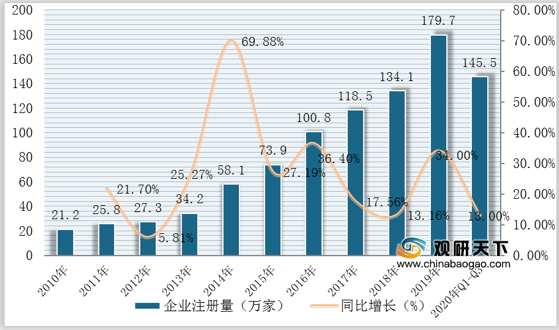
Solution of intelligent supply chain collaboration platform in electronic equipment industry: solve inefficiency and enable digital upgrading of industry

2022注册测绘师备考开始 还在不知所措?手把手教你怎么考?

The file format and extension of XLS do not match
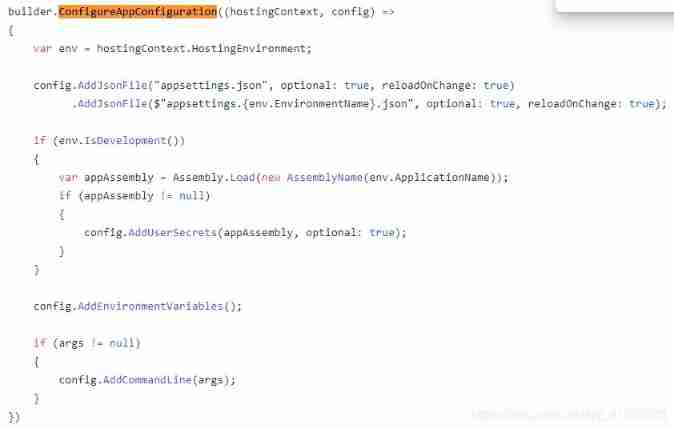
ASP. Net core middleware request processing pipeline
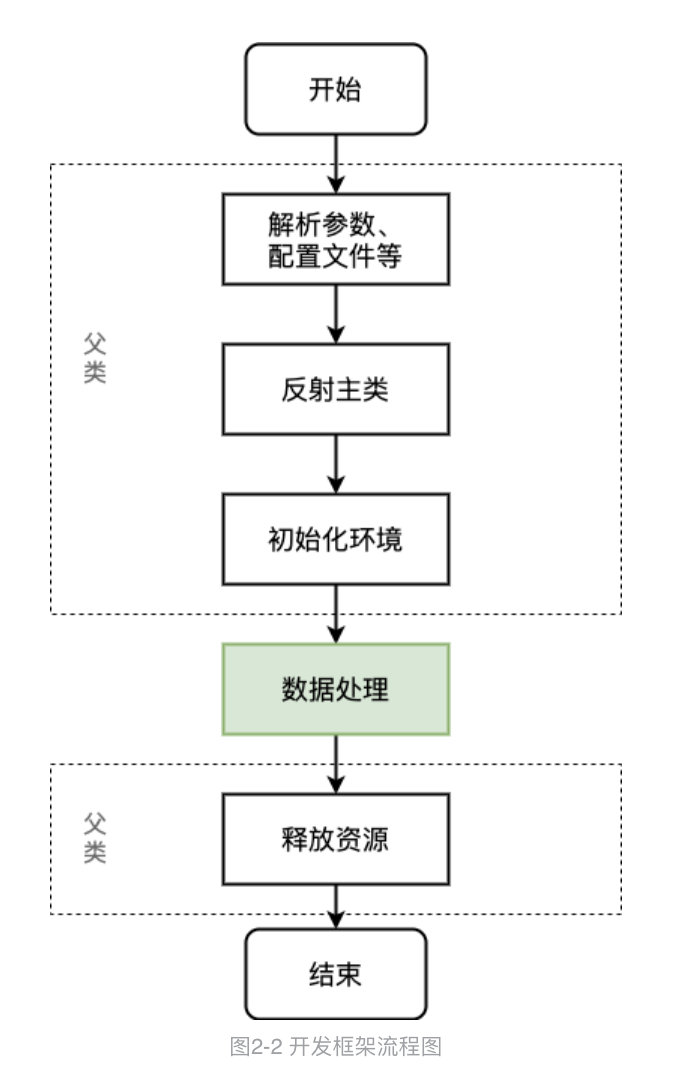
Design and implementation of spark offline development framework

Interface

Learn about scratch
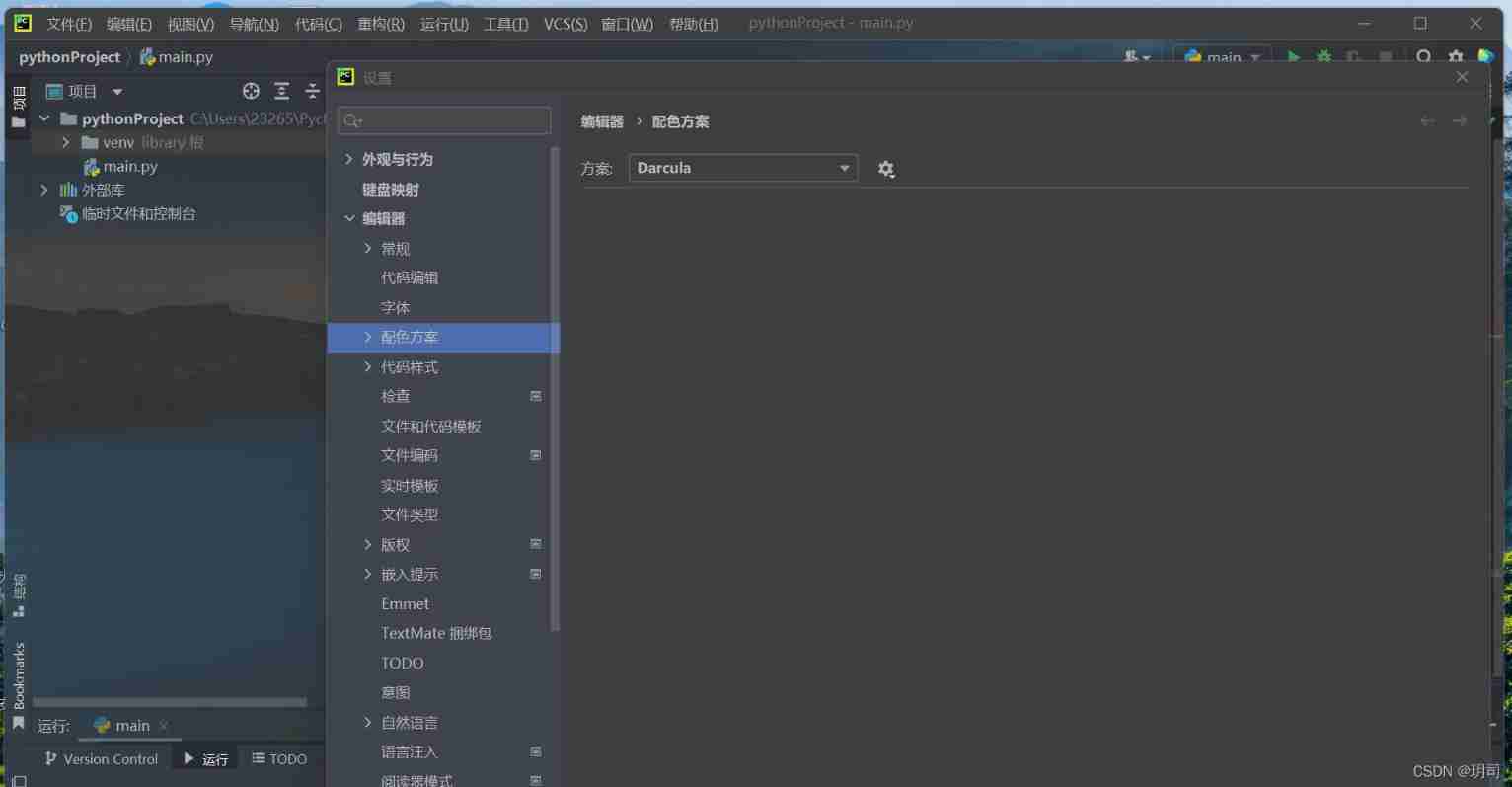
Pycharm basic settings latest version 2022
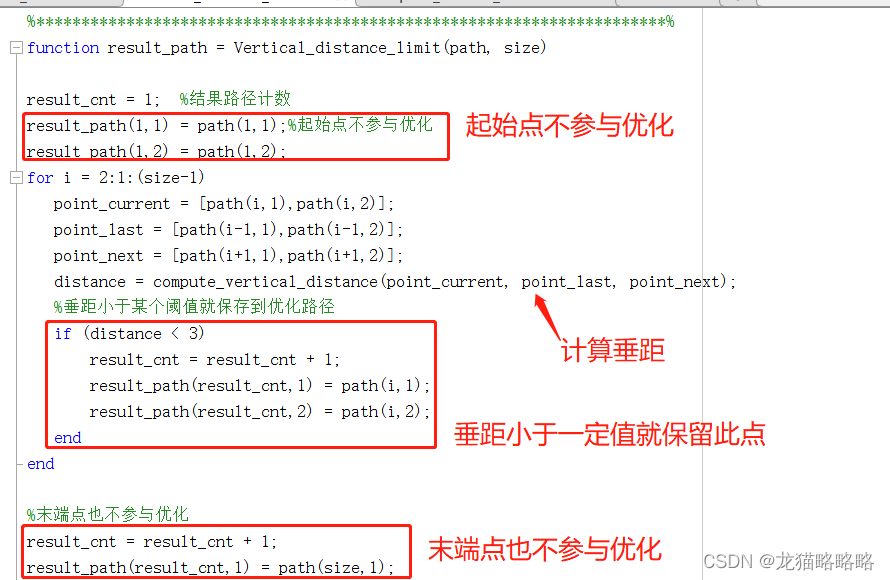
【路径规划】使用垂距限值法与贝塞尔优化A星路径
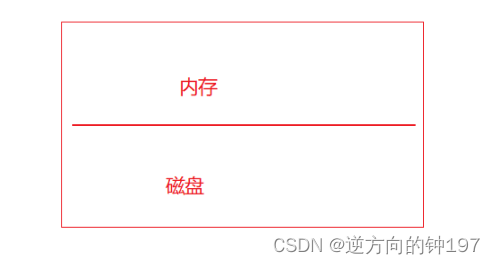
Get started with mongodb
随机推荐
SAP memory parameter tuning process
Summary of common methods of object class (September 14, 2020)
How can we make money by making video clips from our media?
C simple question one
[experiment sharing] log in to Cisco devices through the console port
MongoDB快速入门
Learn about scratch
Progress broadcast | all 29 shield machines of Guangzhou Metro Line 7 have been launched
Pigsty:开箱即用的数据库发行版
go time包常用函数
redis缓存工具类,值得拥有~
As a new force, chenglian premium products was initially injected, and the shares of relevant listed companies rose 150% in response
archery安装测试
Access database query all tables SQL
[untitled]
Navicat connects Oracle
Live-Server使用
Dependency injection
Anxinco EC series modules are connected to the multi protocol access products of onenet Internet of things open platform
ping报错:未知的名称或服务